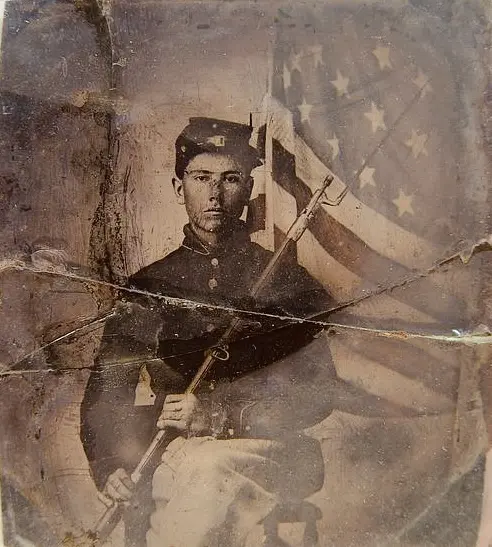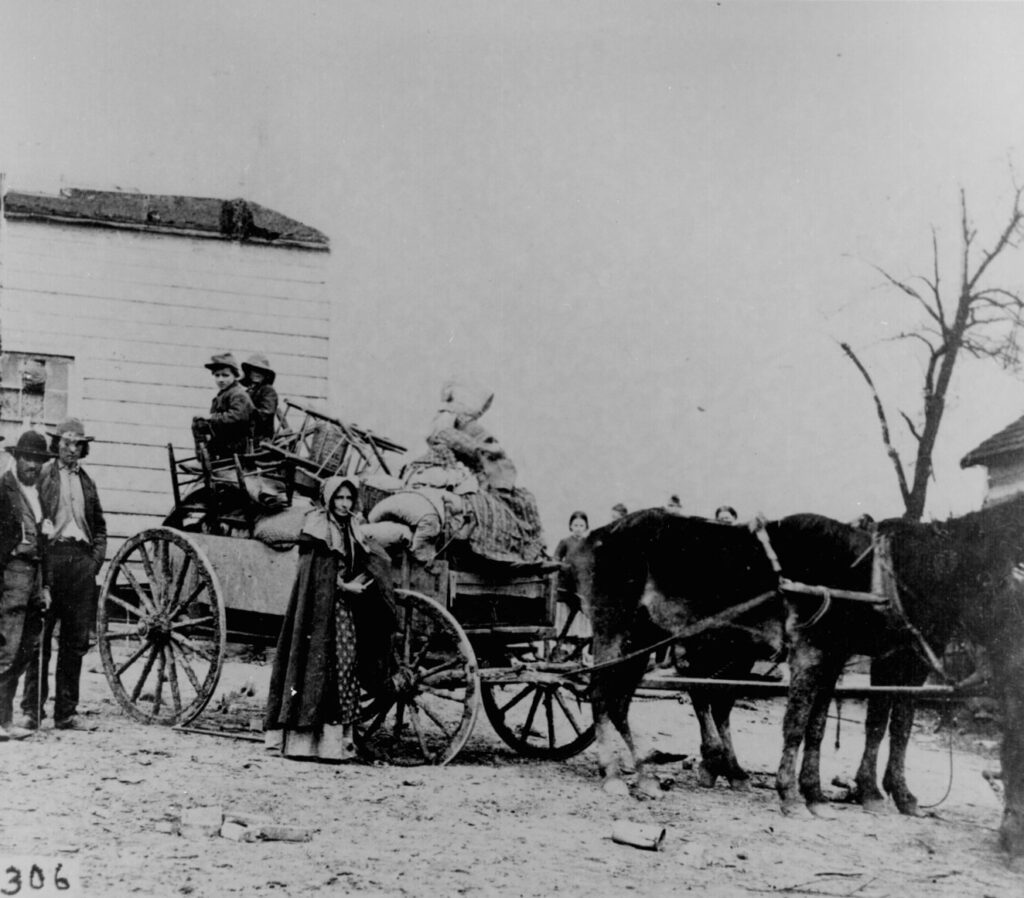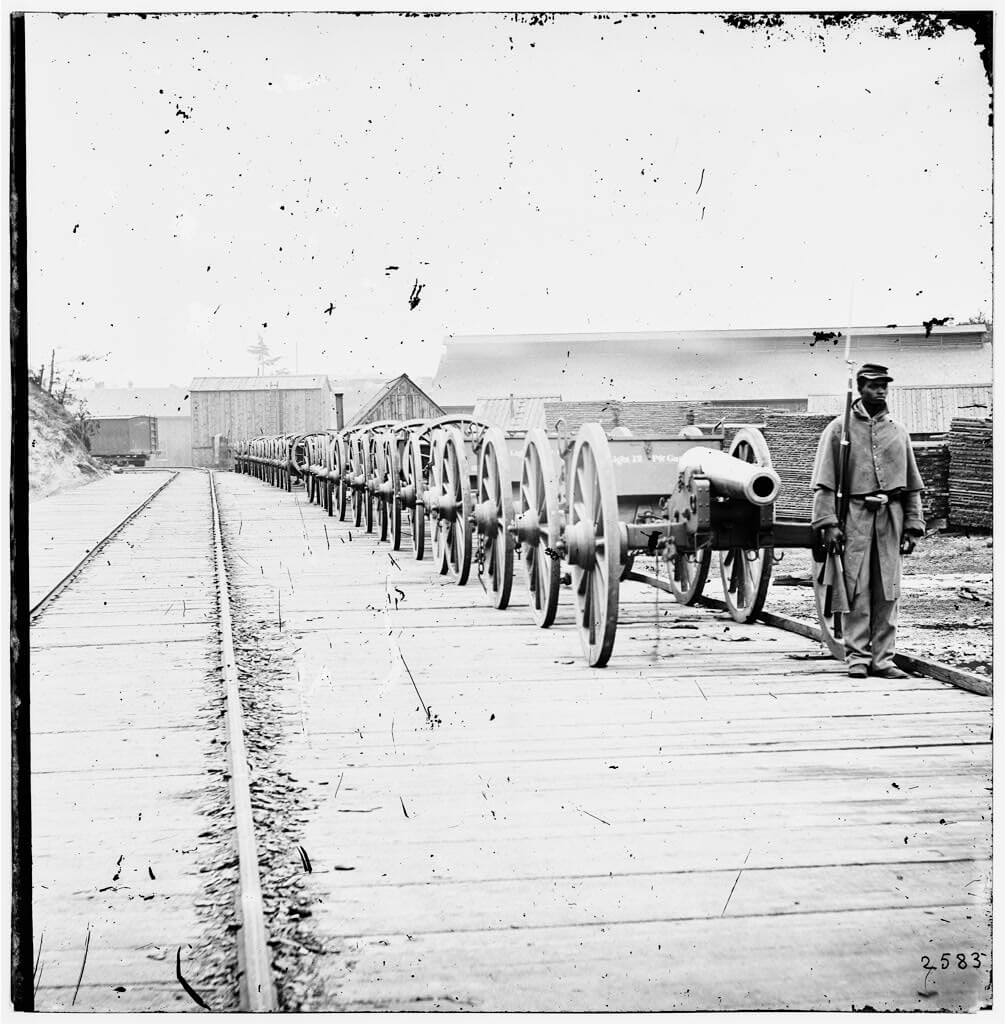The American Civil War is not just an interesting chapter in our history books; it’s a massive turning point that rippled out, changing not just America but how the whole world thought about warfare.
But what makes the American Civil War stand out in the crowded annals of world history? It’s a question that deserves thoughtful examination and insightful answers. We’ve all heard the names and dates, and seen the sepia-toned photographs, but there’s so much more to understand about this period.
So, join us as we delve into the fascinating uniqueness of the American Civil War.
And if you’re traveling in Virginia and want to explore some of the war’s key battle sites, please consider joining us on one of our Virginia Civil War Tours.

The Causes: Slavery and States’ Rights
The American Civil War stands apart in many ways, and at the heart of these distinctions are its root causes. Slavery – a dark and recurring chapter throughout the annals of human history – cast an especially long shadow over this conflict. Yet, the manifestation of slavery in the U.S. wasn’t just another iteration of an age-old institution; it was a singularly unique circumstance that set the stage for this dramatic showdown.
This peculiar institution was deeply embedded in the American economy, particularly in the southern states, where it formed the backbone of agricultural production. However, its moral, social, and economic challenges created an ideological divide between the North and the South that was unmatched in intensity and intractability.
Moreover, states’ rights – the belief that individual states should hold significant power compared to the federal government – was a philosophy central to the conflict. This ideological struggle was unique to America due to its decentralized colonial past and the nature of its Constitution.
The controversy over the balance of power between the federal and state governments underlay the division over issues like slavery and ultimately sparked a war defining the United States’ character and path forward.

The Homefront: Total War and its Consequences
The concept of Total War—where all of a society’s resources, including civilian populations, are mobilized for the war effort—was given a defining manifestation during the American Civil War.
The Union’s Anaconda Plan, and later, General William T. Sherman’s infamous ‘March to the Sea’, exemplified this approach. The entire nation, North and South, was embroiled in the war. Entire towns and cities were devastated, families torn apart, and civilian life upended. The Civil War marked a pivotal shift from traditional modes of warfare and set a precedent for future conflicts, underscoring its unique place in history.
Additionally, the war transformed the nation. Socially and economically, the United States saw profound changes as women took on roles previously held by men, factories ramped up production for the war effort, and communities rallied to provide resources and moral support to the front lines. The profound and lasting societal change is a significant legacy of the Civil War, distinguishing it from many other historical conflicts.

Technological Advances: Birth of Modern Warfare
Another distinctive aspect of the American Civil War is its role as the harbinger of modern warfare. The conflict saw significant technological advancements and strategies that revolutionized the art of war.
Land warfare was transformed by the use of railroads for rapid troop deployment and logistics, and the introduction of rifling in small arms and artillery made battles deadlier. These technological advances, coupled with trenches and field fortifications, marked a shift from Napoleonic tactics to more modern combat methods.
At sea, the Civil War saw the rise of ironclad warships like the USS Monitor and the CSS Virginia, effectively ending the era of wooden naval vessels. Further, using submarines and innovations in naval mines or torpedoes showcased a leap in naval warfare technology.
Telegraphy played a significant role in communication during the Civil War, allowing for faster relay of orders and intelligence. This set a precedent for future wars where rapid communication would be crucial.
These innovations significantly influenced military strategies in the United States and globally, marking the American Civil War as a significant pivot toward modern warfare.

The Role of African Americans: From Slavery to Soldiers
A unique facet of the American Civil War is the transformative role of African Americans. As the war began over the issue of slavery, the involvement of African Americans wasn’t just notable, it was symbolic. Initially, African Americans were primarily used in support roles, but as the war progressed, their role evolved significantly.
The Emancipation Proclamation of 1862 opened a pathway for African Americans to enlist in the Union Army. More than 180,000 African Americans, many formerly enslaved people, seized the opportunity to fight for their freedom, contributing significantly to the Union victory. Their bravery and resilience challenged perceptions and paved the way for important steps toward racial equality.
If you want to learn more about this aspect of the war, we recommend booking a place on our From Enslaved to Soldier: African American Civil War Tour.

Reconstruction and Its Lasting Legacy
During Reconstruction, the United States faced an unprecedented challenge: weaving the rebellious Southern states back into the national fabric and defining the rights of freed slaves in a society that had hitherto denied them their humanity. These tasks set the stage for sweeping constitutional changes that had far-reaching implications, resulting in the landmark 13th, 14th, and 15th Amendments. The abolition of slavery, equal protection under the law, and the protection of voting rights were revolutionary concepts in a world still grappling with the aftermath of a war fueled by inequality.
The Reconstruction period following the Civil War wasn’t just a phase of recovery but a crucible of monumental transformation. This profound political, social, and economic upheaval was a phenomenon without parallel in American, and perhaps world, history.
What truly distinguishes the Reconstruction era in the context of the Civil War is the indelible impact it had on the American psyche and the nation’s societal structure. It wasn’t just a sequel to the war; it was an integral part of the Civil War narrative, a significant chapter in the journey towards a more inclusive and equitable nation – values that would ascend to a global stage during the 20th century as the US became the world’s leading superpower.
The legacy of the Civil War doesn’t merely lie in its historic battlefields and imposing monuments. It resonates in every aspect of American life, from contemporary racial and social dynamics to the ongoing debates around states’ rights and federal power.
The reverberations of the Civil War and the Reconstruction era continue to echo through the centuries, serving as a testament to their unique place in the annals of world history.
The Uniqueness of the Civil War
In understanding the American Civil War, we recognize its uniqueness, rooted in its causes, progression, and long-lasting effects. This conflict, born out of deeply ingrained societal divisions and ideological differences, brought forth the concept of Total War, saw significant technological advancements, and provided a stage for a societal transformation.
It challenged and changed the nation in unprecedented ways. Recognizing these unique aspects of the American Civil War allows us to appreciate the complexity of this period and its profound influence on the trajectory of American history and identity.
There’s no better way to continue exploring American Civil War history than by visiting historical sites related to the war. Browse our selection of Civil War Tours and embark on a journey into our nation’s past.
If you have a particular research topic or historical theme you want to focus on while visiting the battlefields, you can enjoy a unique, tailored experience with our Custom American Civil War Tours option.
If you have any questions, please get in touch.
Want to continue reading about American Civil War history? Next, read How Did the American Civil War End?.


